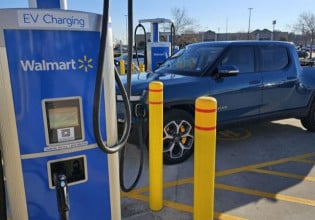More flexibility and reliability for long-term investments by cities
The TALQ Consortium formally updated its consortium scope to address smart city applications beyond smart outdoor lighting. The new objective of the TALQ Consortium is to extend its standardized software protocol for use between Central Management Systems and generic Outdoor Devices Networks to enable compatibility between systems from different verticals.
As the TALQ Specification for Outdoor Lighting is complete - with the first certified TALQ-compliant products to be announced at the smart city expo 2017 in Barcelona, Spain, in November - the proven TALQ Framework represents the perfect backbone to foster interoperability between different applications, such as parking, e-mobility and waste management.
Smart city flagship projects across the world prove conclusively that real ‘smart’ solutions will be achieved through effective collaboration between different providers, facilitated largely by the adoption of international standards to enable interoperability and the acceleration of innovation. In the coming five years, smart outdoor lighting is expected, by most, to be the largest adopted solution in a smart city.
This is why the TALQ Consortium in 2012 decided to start developing a standard enabling interoperability between street lighting communication networks in the field and the software platforms managing applications via these networks.
The goal has always been - and continues to be - to support cities and municipalities on their way to becoming smart cities by protecting them from vendor-lock-in and, in turn, accelerating adoption of energy- and cost-saving systems.
First TALQ certified products
Several lighting manufacturers - delivering both software and hardware products - took part in the recent plug fest, and successfully passed the associated rigorous certification process. These represent the first certified TALQ-compliant outdoor lighting system components and will be published in November 2017. These certified products offer cities and municipalities more flexibility, a larger product choice, reduced investment risk, assurance of future-proofed technology decisions and greater operational savings.
“With the extended scope we expect to grow our membership base notably in 2018. And we are convinced that the new application areas, such as smart parking, traffic and waste management will stimulate many highly interesting discussions to solve technology and interoperability problems for cities in the long run”, comments Simon Dunkley, Secretary General TALQ Consortium, on the enlarged focus of the organization.






